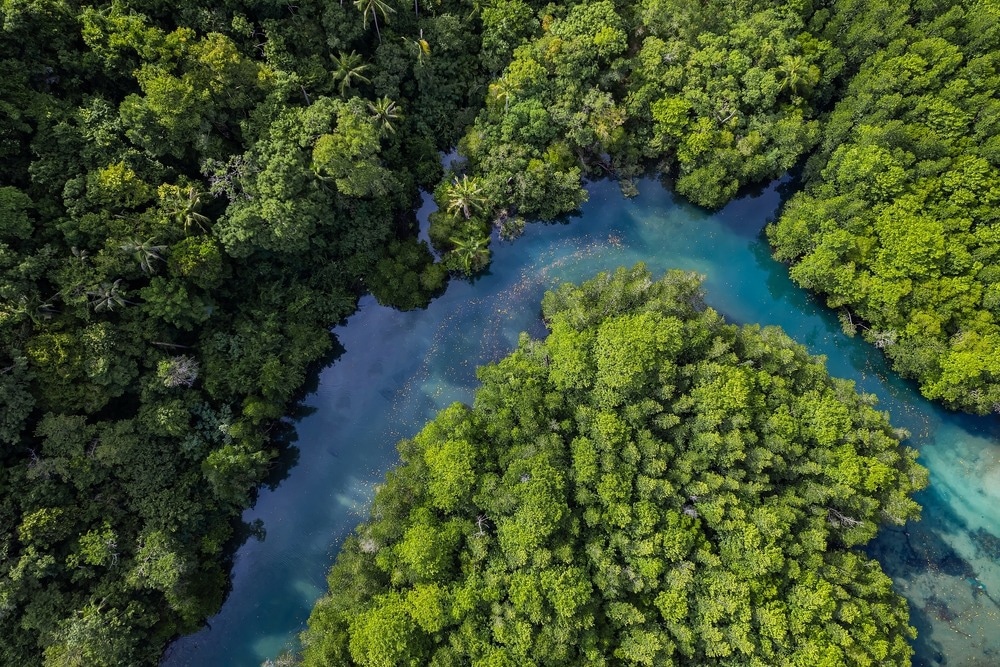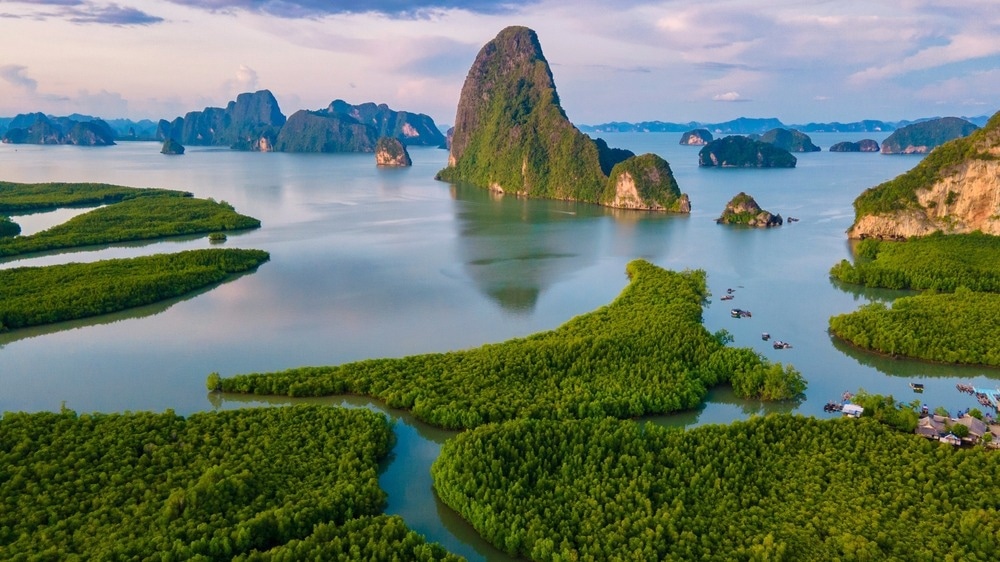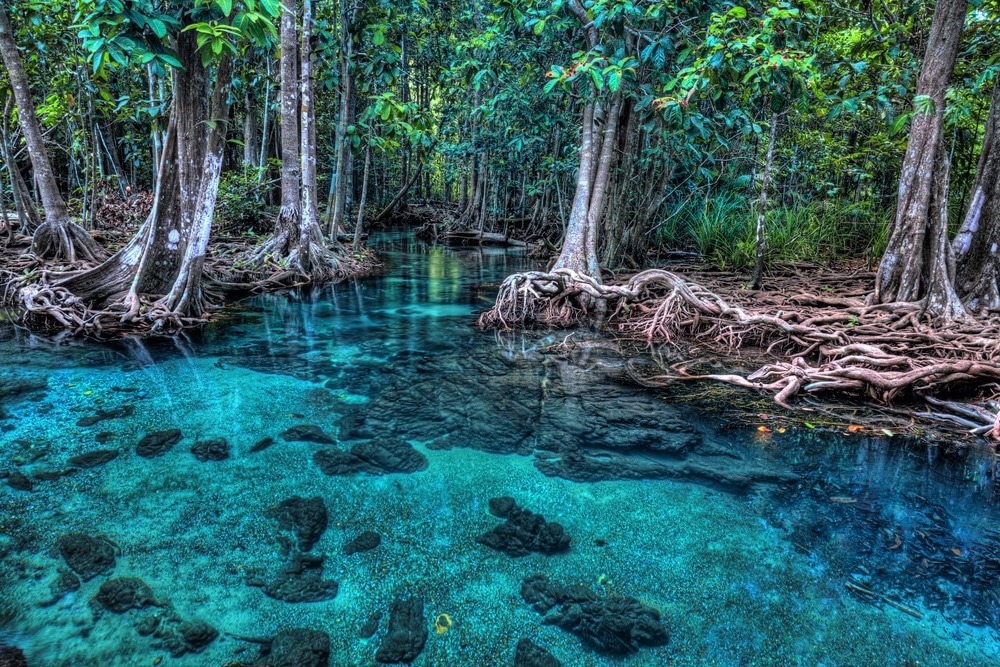Sponsored Content by MGIReviewed by Olivia FrostDec 6 2024
Thailand's coastal ecosystems, particularly its mangroves, are rich in biodiversity and play critical roles in coastal protection, carbon storage, and marine productivity. However, these ecosystems face severe threats from climate change, pollution, and habitat degradation. Genomic conservation in Thailand seeks to protect the genetic diversity of mangroves by using modern techniques such as DNA sequencing and genetic monitoring.
In this interview, Wirulda Pootakham, the Director of Thailand's National Omic Centre, talks to NewsMedical about genomic conservation in Thailand's mangroves.
Could you tell us about your job at the National Omic Centers and how you came to specialize in ecosystems like mangroves?
My name is Wirulda Pootakham. I am the Head of the Genomic Research Lab at Thailand’s National Omic Centre. My colleagues and I conduct genomic research, focusing on genetic diversity in crucial ecosystems such as mangrove forests.
These ecosystems are important for Thailand’s biodiversity and are sensitive to natural and human-induced stressors. Understanding their genetic makeup might help ensure their persistence despite considerable threats from climate change and habitat destruction.

Image Credit: AofLine/Shutterstock.com
Could you elaborate on the key species found in Thailand, the risks they face, and why genetic diversity is so important to their resilience?
Thailand’s mangroves are home to approximately 81 species, with 34 designated “true” mangroves. The principal species are Sonnertia, Rhizophora, Ceriops, and Bruguiera.
Most of these species grow in southern Thailand, particularly along the shore and intertidal zones. Unfortunately, over the last five decades, almost 60 % of our mangrove forests have been devastated due to deforestation, aquaculture expansion, and urbanization.
Genetic variety is critical for mangroves because it allows plants to adapt to environmental stressors, including rising temperatures, salinity fluctuations, and disease. Previous restoration projects did not focus on genetic diversity, reducing resilience. Our research seeks to solve this by supporting genetically varied populations in restoration efforts, making them more resistant to attacks.
Tackling Ecosystem Challenge with MGI Sequencing Technology in Thailand
How can sequencing technologies contribute to mangrove ecosystem studies?
Sequencing technologies provide detailed genomic information that helps researchers understand the adaptations of mangroves to their challenging intertidal environments.
These technologies enable the assembly of high-quality reference genomes, which are essential for studying genetic traits linked to stress tolerance, reproduction, and survival in saline and hypoxic conditions.
This genetic insight supports conservation efforts by identifying traits critical for resilience and restoration, enabling more informed management of mangrove ecosystems.

Image Credit: fokke baarssen/Shutterstock.com
Could you explain how MGI’s technology has helped you enhance your research on mangroves?
MGI has been a key collaborator in supplying us with high-quality sequencing technology. We have employed MGI-seq for whole-genome sequencing and other applications, such as RAD-seq, to quantify genetic diversity accurately.
So far, we have sequenced around 15 of Thailand’s 80 mangrove species. This method has also enabled us to find SNP markers, which are crucial for assessing genetic diversity within and between animal populations.
These findings are critical with rising ocean temperatures triggering bleaching events, as we experienced this year. Our work with MGI also includes essential agricultural crops like rice, sugarcane, and corn, where genetic insights might improve resilience to environmental changes.

Image Credit: Zhukova Valentyna/Shutterstock.com
How can technologies like RAD-seq help address the challenges associated with studying mangroves?
Studying mangroves presents several challenges, including understanding their genetic diversity, biodiversity, and evolutionary adaptations. Restriction Site-Associated DNA Sequencing (RAD-seq) technology is very valuable in addressing these challenges.
It provides sufficient Single Nucleotide Polymorphism (SNP) data to comprehensively analyze the genetic variation of mangrove populations. This allows researchers to study biodiversity, genetic structure, and evolutionary history more effectively.
By identifying key genetic markers, RAD-seq enables us to understand how mangroves have evolved and adapted, which is essential for their conservation and restoration efforts. Moreover, this technique can help identify endangered or vulnerable species within mangrove ecosystems, further supporting their protection
About Wirulda Pootakham
Wirulda Pootakham earned her Bachelor’s degree in Plant Molecular Biology from Cornell University in 2002, graduating summa cum laude. She completed her PhD in Cell and Molecular Biology at Stanford University in 2010 and joined the Genomic Research Lab at the National Center for Genetic Engineering and Biotechnology (BIOTEC) in Thailand.
Her research focuses on using genomic technologies to develop elite varieties of economically important plants like oil palm, rubber tree, cassava, and sugarcane. She has received several awards, including the Young Technologist Award from the Foundation for the Promotion of Science and Technology under the Patronage of His Majesty the King in 2017 and the Taguchi Prize for Outstanding Research Achievement in Biotechnology from the Thai Society for Biotechnology in 2022.
Pootakham has been involved in projects addressing environmental issues of coral bleaching in the Gulf of Thailand and Andaman Sea. In recognition of her pioneering work in assessing coral genetic diversity in Thai waters, she was honored with the UNESCO-L’Oréal For Women in Science Fellowship in 2018. Her recent projects include assessing genetic diversity in mangrove populations to support conservation efforts along Thailand's coasts.
About MGI
MGI Tech Co., Ltd. (or its subsidiaries, together referred to as MGI) is committed to building core tools and technologies that drive innovation in life science. Our focus lies in research & development, manufacturing, and sales of instruments, reagents, and related products in the field of life science and biotechnology. We provide real-time, multi-omics, and a full spectrum of digital equipment and systems for precision medicine, agriculture, healthcare, and various other industries.
Founded in 2016, MGI has grown into a leader in life science, serving customers across six continents and establishing research, manufacturing, training, and after-sales service facilities globally. MGI stands out as one of the few companies capable of independently developing and mass-producing clinical-grade gene sequencers with varying throughput capacities, ranging from Gb to Tb levels. With unparalleled expertise, cutting-edge products, and a commitment to global impact, MGI continues to shape the trajectory of life sciences into the future.
As of June 30, 2024, MGI has a team over 2,670 employees, with research and development personnel accounting for approximately 32.16%. Our business spans over 100 countries and regions worldwide, serving more than 3,000 users.